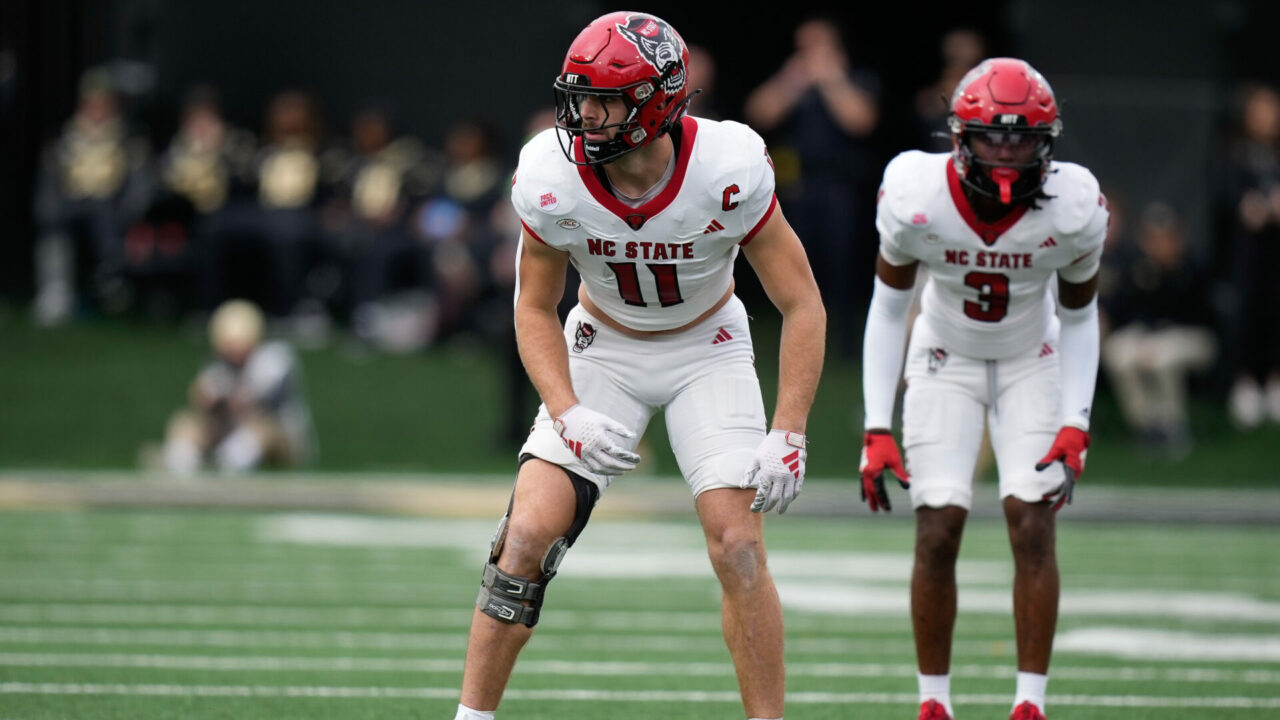Le’Veon Bell’s situation is not the end of the world. Yet.
Le’Veon Bell’s name is on the tip of everyone’s tongue after failing to finalize a long-term deal before the league’s July 17th deadline. Bell will play the 2017 season under the exclusive franchise tag designation, as confirmed by Art Rooney II back in February.
Steelers Nation should relax: playing under the this one-year tender isn’t the end of the world. It’s also no guarantee of a departure at the end of the 2017 season. The Steelers remain in the driver’s seat as far as 2018 and beyond is concerned. There’s no doubt Rooney, and General Manager Kevin Colbert will need to be more competitive with their next offer, and they will. But with this initial offer in 2017, you can understand where they are coming from. The Steelers aren’t traditionally big spenders in free agency, opting instead to building their team through the draft and selecting cost effective players. They’ve also been burned by bad contracts in recent years with players such as LaMarr Woodley and Cortez Allen.
In other words, there was risk on both sides of the negotiating table when it came to anything other than the 2017. The Steelers weren’t ready to commit to guaranteeing any cash beyond this season, while Bell is looking at whether he should take more this year to forego more guaranteed money next year.
The situation is understandable, but that hasn’t stopped segments of Steelers Nation from becoming more vocal about Bell’s situation. There’s a feeling that some of it stems from a running back getting too big for his boots. Bell has mentioned he wants to make the running back position important again in terms of market value, but that is often difficult to do in this era where the quarterback is the star of the show and commands the largest contract on nearly every team in the league.
And in some cases, the wide receivers aren’t far behind the quarterbacks. However, running backs tend to have shorter careers, and thus, money talks when you’re a spoke in the machine. But the argument is that Bell is more than just a cog. In 2016 he proved what he is capable of. He’s also proven to be unreliable for one reason or another.
Let’s be honest here; not playing in 20 out of the 70 Steelers games since he turned pro, isn’t a great record, but also isn’t indicative of his commitment to being the best when you dig below the surface. Half of the games Bell missed came during the 2015 season when an MCL injury suffered against the Bengals. That’s half of those 20 games missed due to one blow. Of the remaining ten, five were due to injuries or simply sitting out. (Such as being rested for the postseason win Week 17 of the 2016 season)
However, the pendulum swings in the other direction when you consider the other five missed games were because of off-field issues. Not once, but twice in the past two seasons, Bell has been suspended for the same reason.
Tagged but not it
The solution? Exercising the exclusive franchise tag designation. This enables the organization to give Bell an extended over the 2017 season. If he stays clean, figuratively and literally, the Steelers have an asset worth hanging onto. We finally got to see what a the Steelers offense looks like in the postseason with Ben Roethlisberger, Antonio Brown, and Le’Veon Bell all on the field at the same time. Bell’s first two playoff games each set individual best for the franchise, and his role was critical to the Steelers appearance in the 2016 AFC Championship game.
The bar has been raised and expectations are higher now for 2017. The Steelers are second favorites at 5/1 with online betting sites as of July 18, 2017, to make the AFC Championship game. Winning the Super Bowl is a bigger task at 11/1 but you have to like their odds. Bell has the power to alter those chances; maybe less so than Ben Roethlisberger or Antonio Brown but nonetheless his 2016 season proved that Bell had a massive impact on a successful season.
Yet, there is an element of undervaluing running backs in some of Bell’s criticism. Quarterbacks and wide receivers are the stars of the show to some, and any sense that a running back is as important is “just the player getting uppity”, which is misguided thinking. We know that Bell is a pivotal player. So the question to be asked over a new contract is two-fold:
- First, is he worth it?
- Second, is he worth it when he’s playing only 80-90% of the games?
The latter is an issue in Bell’s case. He’s a once-in-a-lifetime talent and well worth the financial investment. However, it’s easy to say those things when it isn’t your money being thrown around. I understand the reservations about his availability, but as noted, if he stays out of trouble with suspensions, what else is under his own control?
Pretending to see what the future will hold
The key to Bell improving his status is to cut the stupidity out of his life. In other words, control what you can control.
Prior to the beginning of last season, Le’Veon said that he was doing just that; a second consecutive ban questioned whether that genuinely was the case. As with all indiscretions, the proof only comes when it doesn’t happen again. That’s the proof Pittsburgh needs, and the EFT designation in 2017 helps the Steelers assess the situation. It buys them time to see if there will be another mishap. And while Bell had issues with his MCL and his groin, the majority of his missed time is due to malicious hits.
In terms of ability, he is beyond comparison to his peers. His current tag makes him the highest paid running back in the NFL. So for Bell, he too is being rewarded during an evaluation period of sorts.
Should he get $20-25 million on a long-term deal?
Right now, that’s a risk for the Steelers. The EFT status could harm Bell’s future earnings if he gets injured, but that’s not unlike any other player in the league.
If Bell were to become injured again, as he did earlier this year against the New England Patriots, it would reinforce a perception that the running back is injury-prone and could diminish his negotiating position. It really depends on the “how” and not the “if”. I’d argue it’s an overreaction. One serious injury as a running back is indicative of nothing more than bad luck in most cases. He’s going to take hits and where that is the likeliest outcome, you can guarantee injuries will occur.
How he bounces back from those injuries, plus staying out of trouble, is the key to a future with, or without, Le’Veon Bell. The reality is Bell could remain on the EFT designation for two seasons. He might work out a long-term contract to beyond the 2018 season too. Neither side is stating an acceptable agreement can’t be reached. However, the longer these disagreements continue, especially with a looming training camp holdout, the more bitter each side becomes.
Let’s hope it doesn’t degenerate to the point where Bell becomes ‘the one that got away’.
Author’s note: the following article contains sponsored content and links which may promote other sites and/or products.








